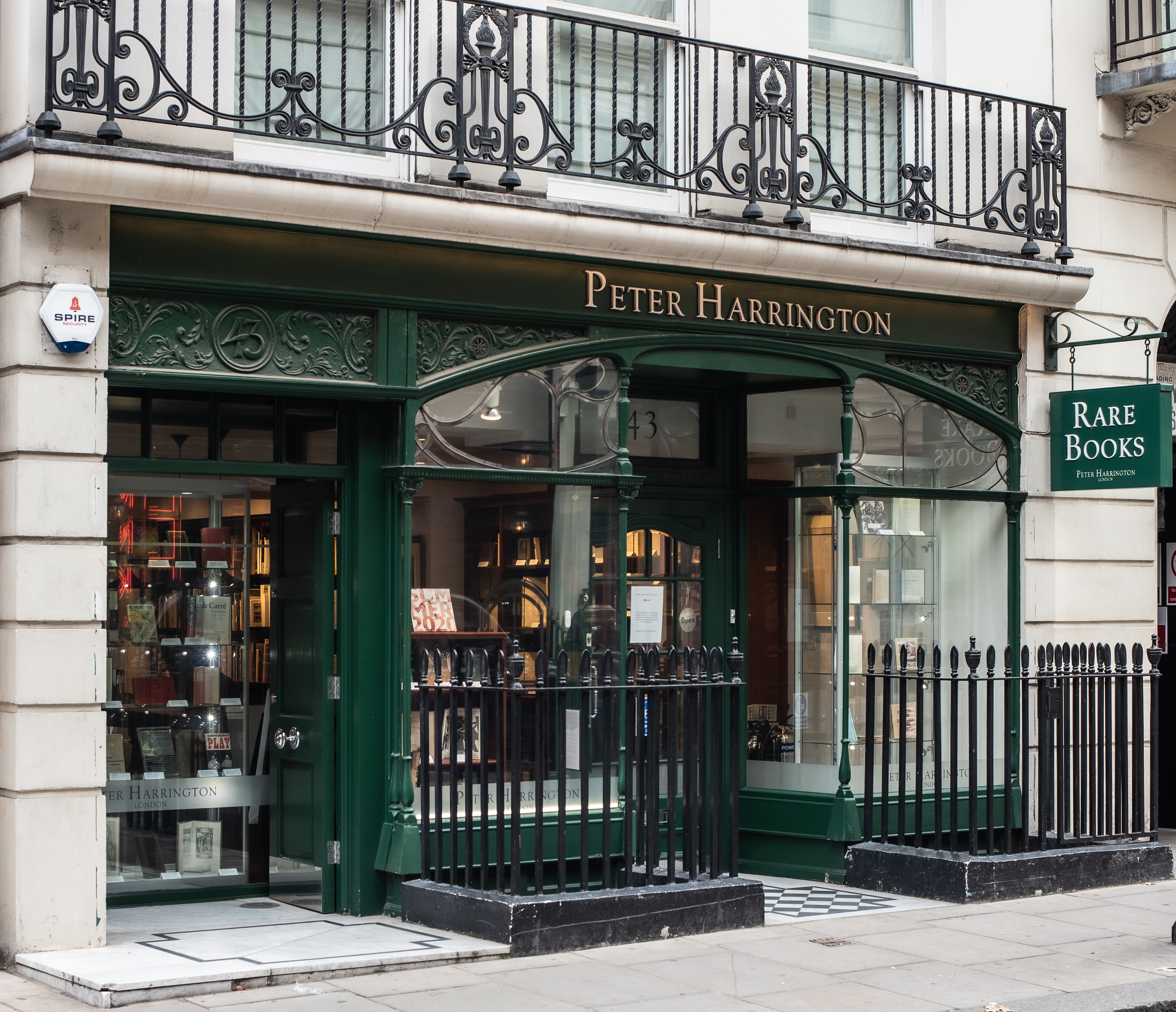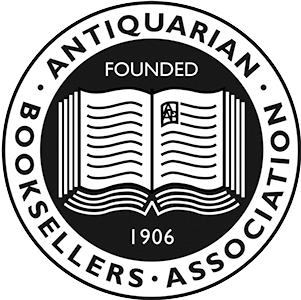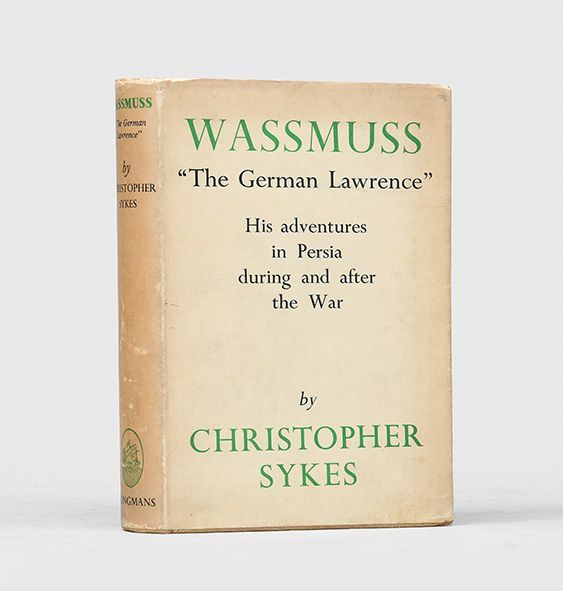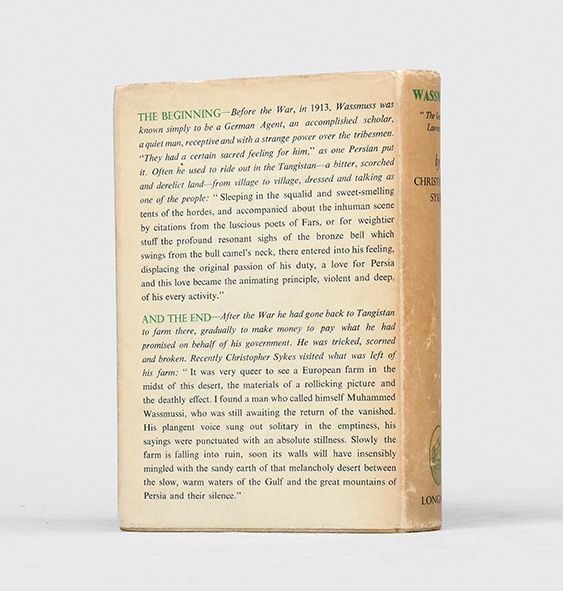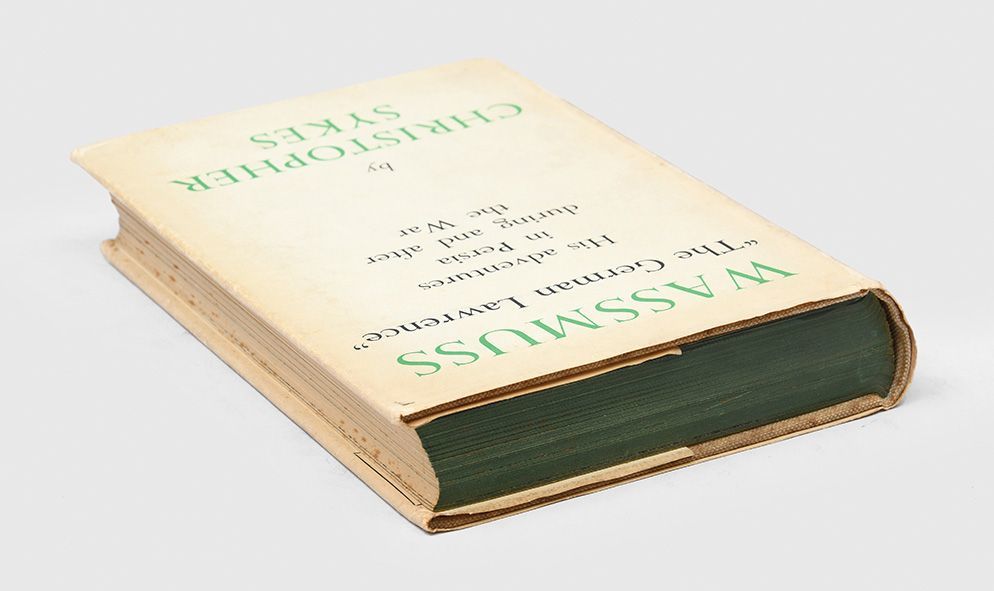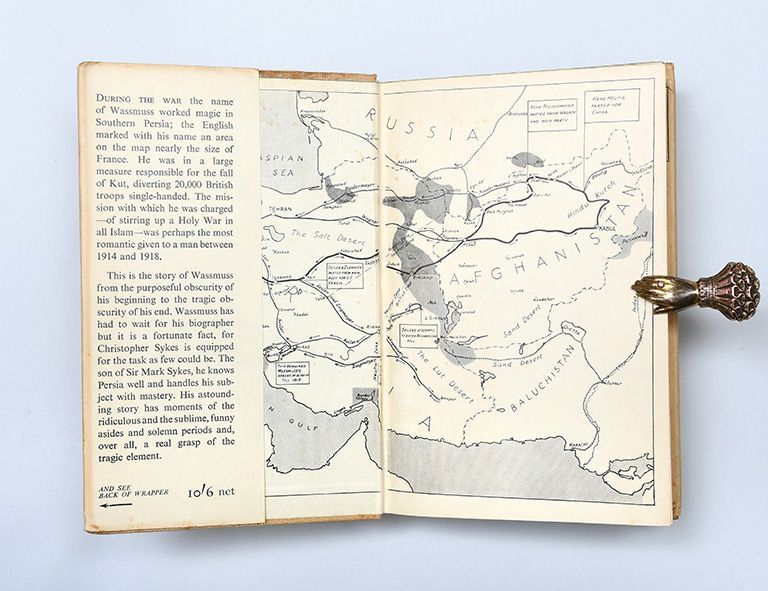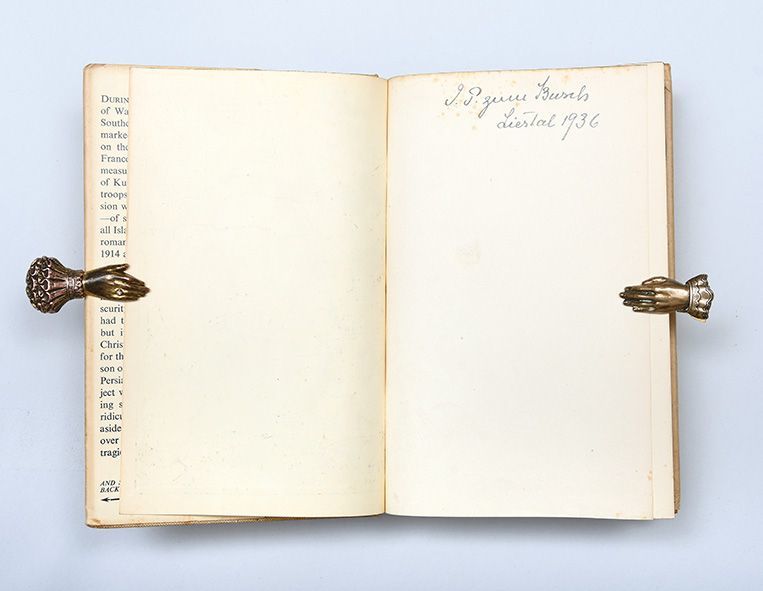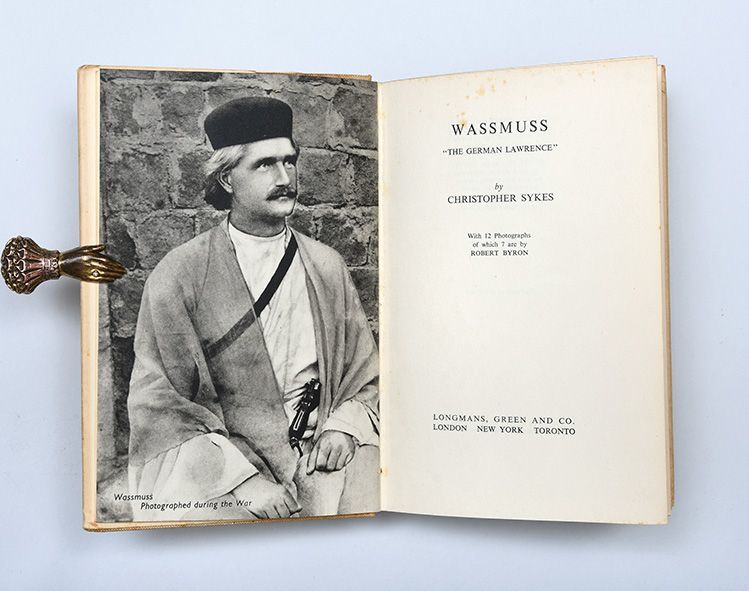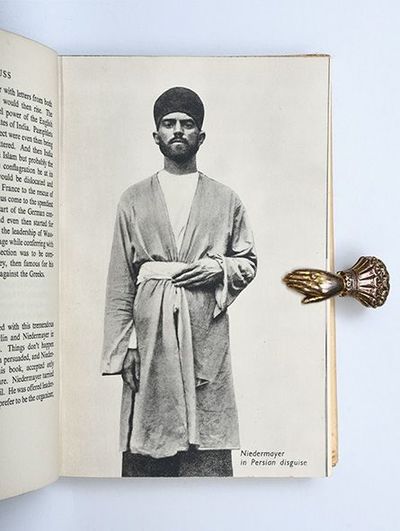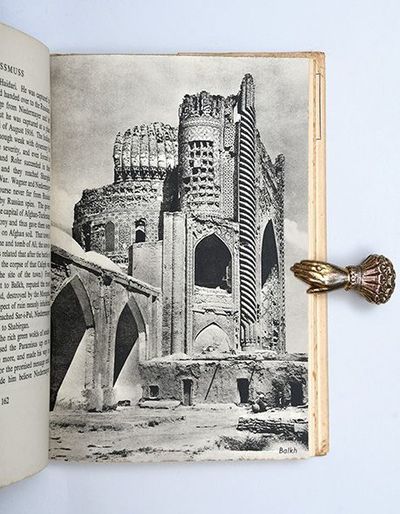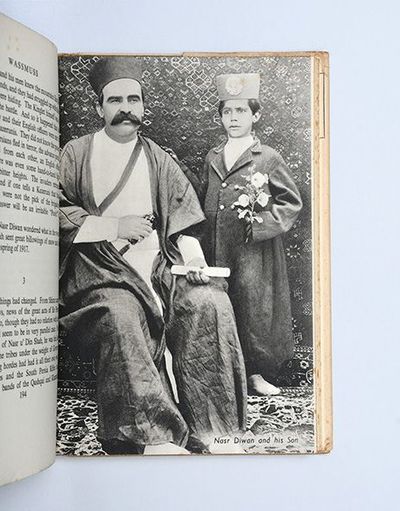London: Longmans, Green and Co.,, 1936. A legendary German player of the Great Game First edition, first impression of an uncommon and attractive book, particularly so in the jacket. Wilhelm Wassmuss (1880-1931) arrived in Bushehr in 1909 as German vice-consul; "The British had little doubt that he was really an intelligence officer
a striking looking man, who spoke fluent Persian and Arabic, he had travelled widely among the tribes of southern Persia, with some of whose chiefs he was on the closest terms. Physically tough, and capable of being ruthless, his credentials for fomenting trouble could hardly have been bettered" (Hopkirk, p.63). In the years leading up to war Wasmuss enjoyed great success in encouraging tribal revolts against the British in the region. When war began, Sir Percy Cox was appointed chief political officer with the Indian Expeditionary Force, masterminding the army's political relations with Mesopotamia, and encouraging the resistance of Ibn Sa'ud, thus initiating another of the personal "duels" that seem to have characterised the Great Game across all times and theatres. Despite best efforts to discourage him, Wassmuss continued his activities unabated and "so worrisome did he become that the British violated Persian neutrality in efforts to arrest him. When they failed Cox even offered a reward for Wassmuss - alive or dead. The Foreign Office, however, was horrified at the prospect of political assassination and the idea was suppressed
Sir Percy, however, had a measure of revenge. Later, when the India authorities had occasion to ask him if there was not something to be done to stop Wassmuss, he replied sardonically, 'The risk which we incur of exciting the abhorrence of His Majesty's Government together with the inability of the Indian Government to authorize any practical form of support to Haidar Khan after his
abortive endeavour to arrest Wassmuss, render it very difficult to do anything which would have effect" (Olson, p. 71 note). After 1916 Wassmuss's influence waned as it became clear to tribal leaders that a German victory over the British was not guaranteed. He received almost no recognition back in Germany after the war, and returned to Bushehr in 1924 intending to set up a farm and repay local tribal leaders from the profits; the farm failed and he returned to Germany, dying in poverty in 1931. Christopher Sykes (1907-86) was the son of Sir Mark Sykes, the traveller and diplomat who helped found the Arab Bureau with T. E. Lawrence and negotiated the much-disparaged Sykes-Picot agreement of 1916. Having left Oxford without a degree, Christopher took a course in Persian studies at the School of Oriental Studies, London and was appointed honorary attaché at the British Legation in Tehran, 1930-31. He later spent two years travelling in Persia and Afghanistan with his friend Robert Byron, an adventure captured in Byron's classic The Road to Oxiana (1937). During the Second World War Sykes became part of the shadowy and risky world he describes in the present work when "as part of Special Operations Executive, he adorned general headquarters in Cairo when the presence of the Duff Coopers and other cronies made it the most elegant place to be, before being posted to Tehran as a spy attached to the British legation. Transferring to the 2nd battalion of the Special Air Service, he worked with the French resistance and was awarded the Croix de Guerre" (ODNB). Octavo. Half-tone portrait frontispiece from a photograph and 11 similar plates of which 7 are by Robert Byron, map endpapers. Original yellowish grey cloth, spine lettered in green, top edge deep yellowish green. With the typographic jacket, printed in black and green. Cloth lightly tanned on the spine and board edges, slight lean, mild browning of the end papers, a few spots of foxing to the fore-edge, otherwise a very good copy indeed, in similar unclipped jacket, just a touch pattern browned as the cloth. Contemporary ownership inscription of German surgeon Josef Paul zum Busch to the first blank. Peter Hopkirk, On Secret Service East of Constantinople, 1994; William J. Olson, Anglo-Iranian Relations During World War I, 1984.

